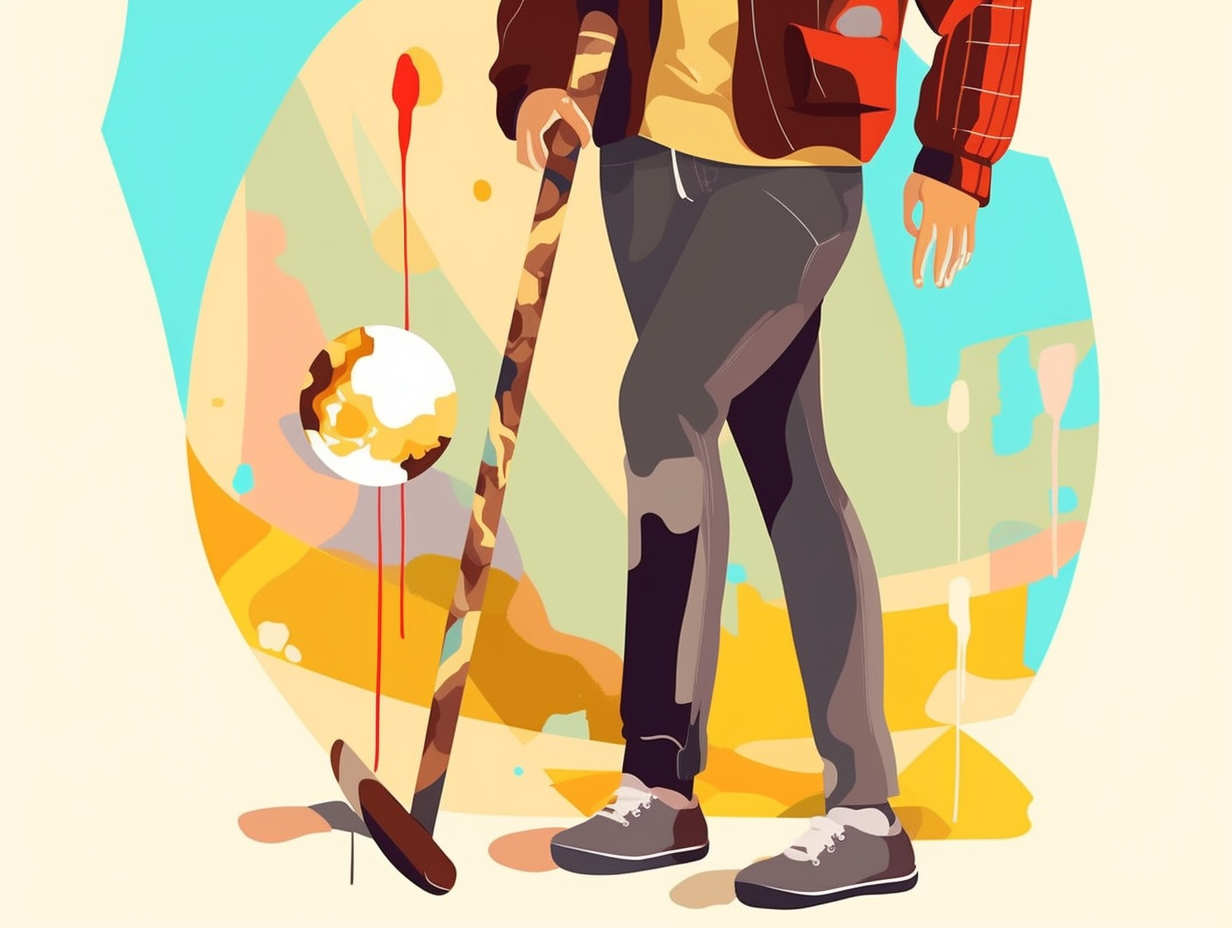Discover the Femur: Top 11 Fun Facts about the Longest Bone in the Human Body!

1. Comedian's Strongest Punchline
Did you hear about the comedian who never skips leg day? He's got the strongest punchline on stage - and it's no joke: The femur, or thigh bone, is the longest, as well as the strongest, bone in the human body, capable of supporting up to 30 times an adult's weight and withstanding pressures of 205 MPa along its length!
Source => openoregon.pressbooks.pub
2. Flamingo's Balancing Act
In a leg up on us two-legged mortals, our pink-feathered friends the flamingos have a secret weapon in their balancing act – and no, it's not their fashionable legwear: The real secret sauce lies in their passive joint moments around the hip and knee, complemented by active muscle forces, making them remarkably stable even while snoozing, without the need for constant muscle control.
Source => sites.nd.edu

Discover the vampire-like cells lurking within your bones, governing their strength and longevity for up to 50 years! Uncover the fascinating secrets of our skeletal empire and why it ultimately crumbles. 🦴💀✨
=> Fun Facts about The-Skeletal-System
3. Incredible Hulk's Favorite Bone
If the Incredible Hulk had a favorite bone, it would definitely be the femur: obviously not for snacking, but because this mighty bone can withstand forces up to 1,800 pounds, making it the largest, thickest, and one of the strongest bones in the human body!
Source => en.wikipedia.org
4. Superman vs. Femur
Step aside, Superman – the femur's here to save the day with its awe-inspiring strength! It's not faster than a speeding bullet or more powerful than a locomotive, but: the femur is the largest and strongest bone in the human body, capable of supporting a substantial amount of weight that's instrumental in standing and moving.
Source => my.clevelandclinic.org

5. Leg Bone Dance Party
If the leg bone's connected to the hip bone and makes you feel like dancing, then you'll love shaking a leg to this thigh-slapping tidbit: The femur, or thigh bone, is the longest bone in the human body and accounts for a whopping one quarter of a person's total height – talk about reaching new heights in skeletal prowess!
Source => scientificamerican.com
6. Gender Reveal in Bones
Bones have gender reveal parties too, they just invite forensic anthropologists instead of cake: the femur, for instance, has dimensions that can help determine the sex of skeletal remains. The vertical diameter of its head is an especially reliable variable with just a 14.39% error rate, making femur measurements not only essential for cracking cold cases, but also for designing bone prostheses.
Source => ncbi.nlm.nih.gov
7. Unknown Pre-Modern Human Species
In a literal bone-chilling twist to your next game of "Guess Whose Femur?", it seems like our family tree just got a bit more crowded: scientists found a 14,000-year-old femur in Southwest China, suggesting the existence of an unknown species of pre-modern humans living alongside our ancestors.
Source => washingtonpost.com
8. Fetal Femur Complications
Femur? More like "Femooh, that's complicated!": A short femur length in a developing fetus is linked to an increased risk of complications such as growth restriction and placenta issues, and healthcare providers should monitor these pregnancies closely, combining ultrasound, Doppler, and biochemical markers to develop a comprehensive risk profile for each patient.
Source => obgyn.onlinelibrary.wiley.com
9. AI for Fracture Detection
In a twist straight out of a sci-fi novel where artificial intelligence saves the day, or rather, the femur: Researchers have developed a deep learning system that can detect femoral neck fractures in pelvic X-ray images with an impressive 83% sensitivity rate. By using data augmentation techniques and genetic algorithms to optimize the system, this artificial intelligence marvel is revolutionizing medical image processing and improving fracture diagnoses for more timely treatments, ultimately saving both time and money.
Source => ncbi.nlm.nih.gov

10. Femur Fitness Tips
Femur Fitness Frenzy: To prevent your thighbones from turning into limp spaghetti, shake it like Elvis with weight-bearing exercises such as walking, stair climbing, jogging, and Tai Chi that generate strong ground reaction forces and challenge your muscles more than your daily couch surfing sessions!
Source => ncbi.nlm.nih.gov
11. Astronauts' Bone Loss Adventure
Ready for a "break-a-leg" cosmic adventure? Astronauts who are dedicated to boldly going where no one has gone before, face some high-stakes challenges - like playing "the floor is lava" with their femurs: Turns out, spending 6 months in space results in a 6% to 10% loss of femur mass, which takes about 3 to 4 years to recover once they're back on Earth!
Source => ncbi.nlm.nih.gov
Related Fun Facts




















